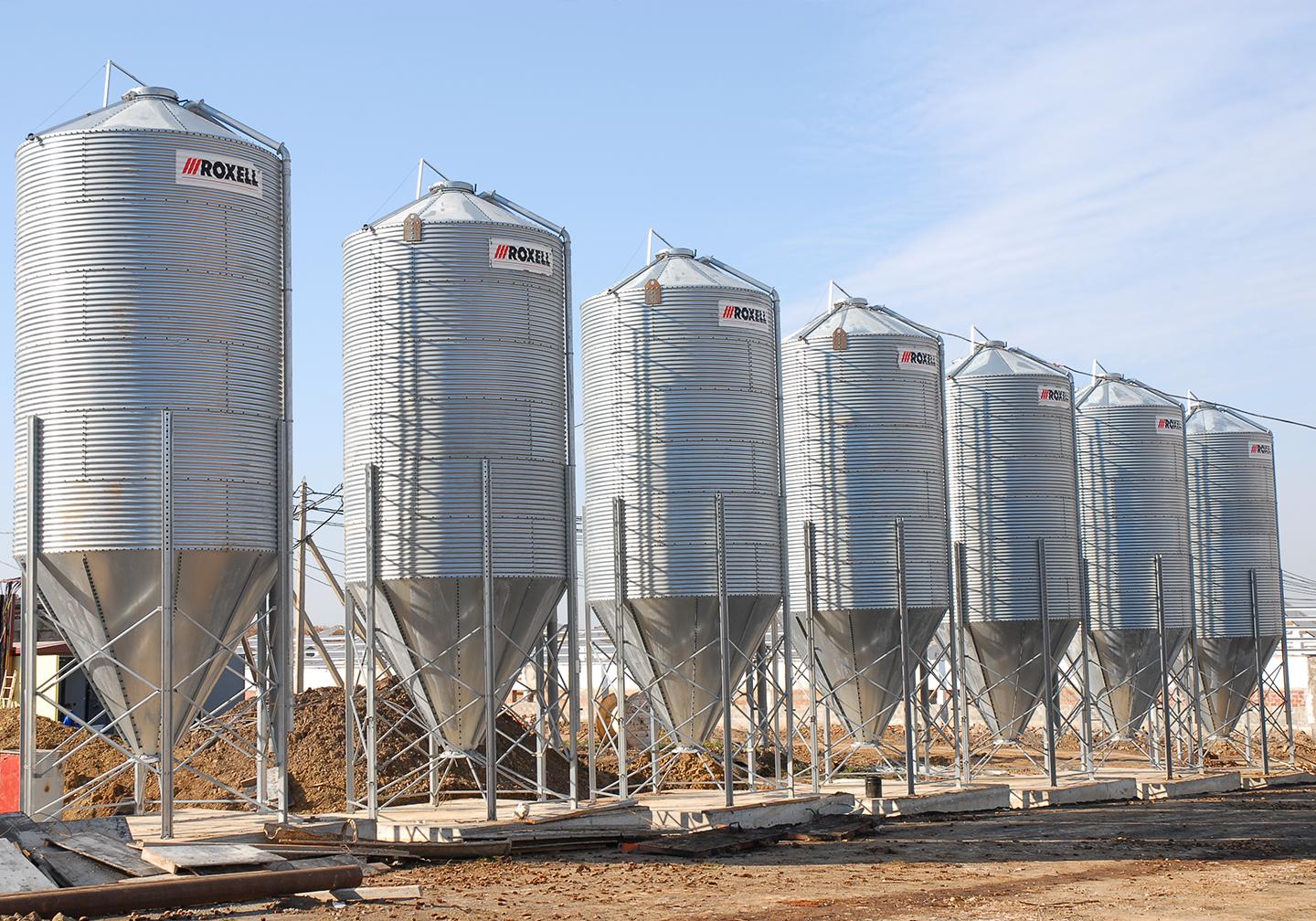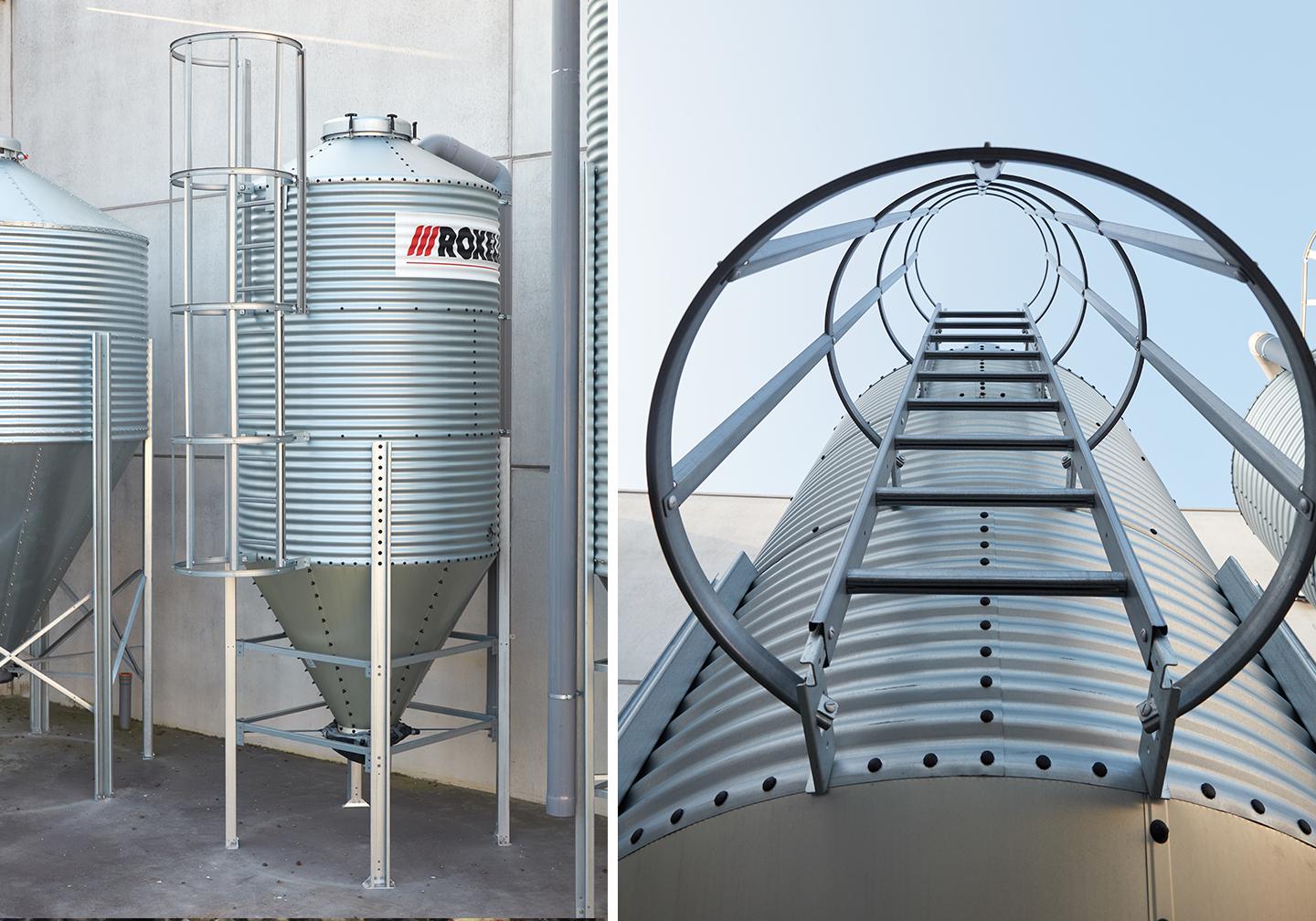Roxell certifies a wide range of galvanized feed bins for the German market
Roxell, the leading manufacturer of automated feeding, drinking, nesting and heating systems, is one of the first to achieve extra certification for the sale of 16 types of feed bins in Germany.
Feed bins capable of dealing with wind loads of up to 30 m/s have passed technical tests.
This range of feed bins already complied with Eurocode 3 - the EU regulations for the constructional safety of steel constructions. However, the German government decided to impose extra regulations. Roxell’s feed bins, which are capable of dealing with high wind speeds, were therefore submitted to additional checks in accordance with those local regulations (Typenprüfung). Roxell’s feed bins, which can deal with wind loads of up to 30 m/s, are now formally approved for the German market.
Demands for highest wind loads in Germany
Every area in the EU is allocated a wind zone. Wind zone 4, which is the highest rating, is allocated to some coastal regions. In this zone, Roxell supplies feed bins with extra high wind load ratings up to 30 m/s. Germany decided, independently of the allocated wind zones, to only permit steel constructions that comply with the highest wind load ratings. In addition, the country tightened the EU regulations further. The differences in the EU between a regular feed bin and a 30 m/s bin relate to the stability of the legs and the hopper braces. For the German market, Roxell also strengthened the body of the feed bin with thicker steel sheets.


Extensive range for the global market
As well as the feed bins rated for wind loads of up to 30 m/s, Roxell also manufactures feed bins with wind resistance up to 26 m/s. The latter are the most used type of feed bin in the EU. The capacity of the whole range of feed bins varies from 2.5 tons of feed up to 32.4 tons. In the USA, Roxell even supplies feed bins with a capacity of 97.5 tons. The diameter and the number of rings determine the volume of the feed bins. All Roxell’s metal feed bins comply with the EN 1090 standard that determines the criteria for the manufacture of steel and aluminum constructions.

